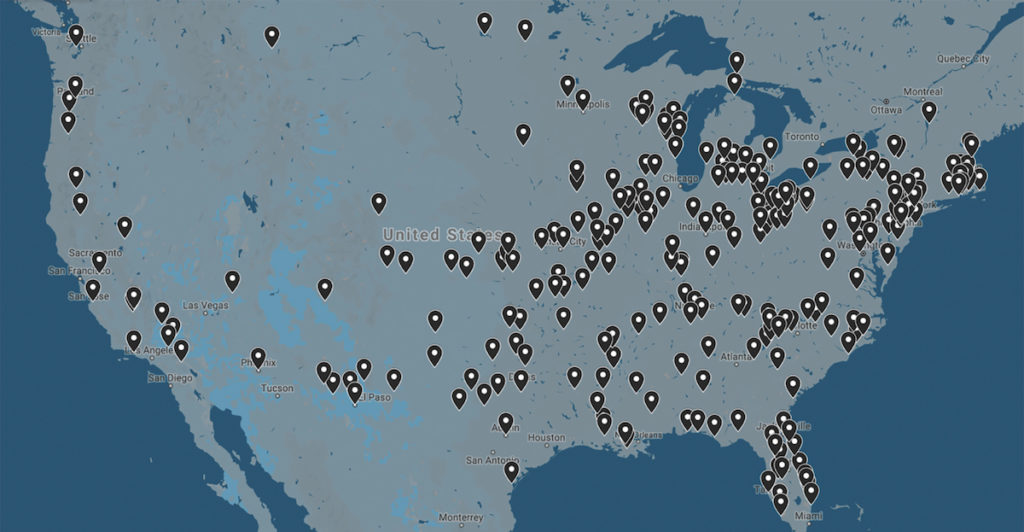
Readers must have noticed that Cape Cod’s only daily newspaper has gotten much slimmer in the last few months. It’s no accident. According to the Brookings Institution, over 2,000 U.S. newspapers have disappeared in the last 15 years. People are increasingly getting their news from screens instead of print. And that’s a shame.
The standard narrative is that ad revenue has dropped, so papers are forced to cut staff to survive. But, behind the scenes, something else is happening: corporate mergers.
The Cape Cod Standard Times, founded in 1936, became the Cape Cod Times in 1975 and stated in a front-page editorial: “We adopted the new name because we want it clearly known that we are an independent Cape Cod newspaper, printed and published on the Cape, by Cape Codders, for Cape Codders.” Clear enough.
Since then, the Times has experienced a byzantine succession of corporate owners, including Ottaway, Dow Jones, News Corp. (Rupert Murdoch), GateHouse Media and its parent company, New Media Group, and, most recently, Gannett. The latest merger retained the name Gannett, founded in 1906, ostensibly to give itself a veneer of respectability. But the owners are private-equity Wall Street types. (Gannett also owns the Provincetown Banner and the Cape Codder.)
In 2013, when News Corp. sold the Dow Jones newspapers, its CEO announced that the papers were “not strategically consistent with the emerging portfolio of our company.” Also, corporate-clear enough.
Why would Wall Street be interested in failing newspapers? To wring all the remaining profits out of the print edition, while selling off any tangible assets like property. So, what’s the harm? Investigative journalism dies. People no longer know what’s happening in their communities.
A recent episode of the NPR program Hidden Brain, called “Starving the Watchdogs,” illustrated very well how a local reporter’s investigative work can have international repercussions — and how the demise of local newspapers can increase corruption and taxpayer costs while decreasing voter participation and civic engagement.
In November 2019, Paul Pronovost, the respected editor of the Times since 2005, resigned. In a parting memo to his employees, he wrote, “I do feel deep regret for not being able to hold the line on some of my core principles. In many ways, I feel I’ve failed you all and those who are no longer working at 319 [Main St.] … That’s one of the reasons I know it’s time to move on: I am not able to give you what you need and deserve.”
So, what now, after the loss of even more jobs and ad revenue during this pandemic? On May 4, William Mills was the editorial page editor of the Times. On May 5, he was gone. Gannett ordered employees who do yeoman work at the paper to be furloughed for one week per month for three months.
Gannett recently announced that it had established a nonprofit organization, ostensibly for charitable causes, and subsidized it to the tune of $2.1 million. That money, of course, could have been re-invested locally in the Times. The press release did not mention that $2.1 million was the exact amount Gannett made from the sale of the two Times buildings on Main Street in Hyannis last year.
If the Cape Cod Times is to be saved, it will be up to its readers to take the initiative. They are loyal, passionate, and generous. Consider their $1 million-plus donations last winter to the Needy Fund, and $1.13 million to the Covid-19 Fund as of last May.
Consider the Berkshire Eagle success story. The paper, whose roots go back to 1789, remained in private hands until 1995, when debt obligations forced its sale to the Media News Group, which instituted several rounds of staff cuts and price increases. In 2016, a small group of private, local investors bought it back and restored the manpower that had been cut. The Eagle is now on the road to regaining the award-winning excellence it once enjoyed. Yo-Yo Ma and other notables are on the community advisory board.
Cape Cod has a similar demographic of retired wealth and celebrities. Is it beyond the pale to imagine that this could happen here?
Leo Thibault lives in Brewster.



